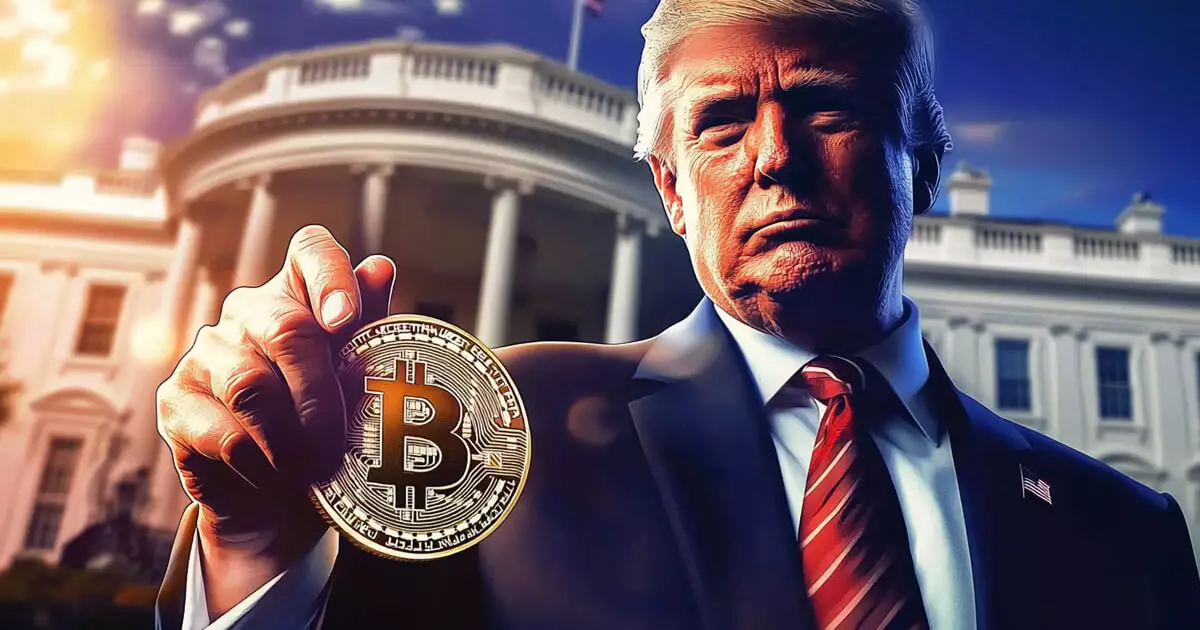The cryptocurrency landscape in the United States is poised for an intriguing transformation, with former Commodity Futures Trading Commission (CFTC) chair Chris Giancarlo—a figure fondly dubbed “Crypto Dad”—emerging as a strong contender for the role of the first White House “crypto czar”. This potential position, which is reportedly being established under the Trump administration, seeks to carve out a coherent framework for U.S. cryptocurrency policies amidst an expanding $3 trillion digital asset market. However, the precise details surrounding this role—including its integration into a possible Crypto Advisory Council—remain under wraps.
Giancarlo’s experience as the head of the CFTC from 2017 to 2019 places him at a strategic advantage. During his tenure, he spearheaded the introduction of bitcoin futures, thereby setting a significant precedent in the regulation of digital assets. His ongoing advocacy for blockchain technology and leadership of the Digital Dollar Project illustrate his commitment to exploring the implications of digital currencies, despite his criticism of a potential federal central bank digital currency (CBDC). This particular stance aligns closely with Trump’s broader campaign messages, indicating that Giancarlo’s philosophy is in sync with the administration’s approach to economic innovation.
As the political climate shifts, sources from Trump’s transition team have revealed that Giancarlo turned down roles at other financial regulatory bodies like the SEC but remains receptive to the prospect of the crypto czar role. This position demands a balance of regulatory oversight, particularly regarding stablecoin governance, and support for the burgeoning crypto sector. Trump’s vocal commitment to reforming crypto regulation, especially in criticism of the current administration’s modus operandi, could catalyze pivotal changes, fostering an environment more conducive to innovation.
Nevertheless, the creation of a new government role has met with mixed reactions. Trump’s advisers have voiced doubts about expanding bureaucracy, arguing that it contradicts the former president’s commitment to minimizing governmental oversight. However, a significant faction within the cryptocurrency space, including industry leaders like Coinbase’s Brian Armstrong and Ripple’s Brad Garlinghouse, have signaled support for such appointments that promise clarity in regulation.
Giancarlo’s candidacy for the crypto czar position has sparked optimism among industry stakeholders. Influential voices like Cardano founder Charles Hoskinson and David Bailey, CEO of Bitcoin Magazine, have publicly endorsed him, attesting to his extensive knowledge and experience in the field. While other candidates are reportedly in the mix—such as Bailey and Riot Platforms’ Brian Morgenstern—Giancarlo stands out as the frontrunner, according to insiders.
Ultimately, the emergence of a crypto czar signals a potential shift towards a more strategic and structured approach to digital asset policy in the U.S. If realized, this position could serve to harmonize regulatory measures while spurring the industry’s growth, bringing together innovation and oversight that has been sorely lacking in recent years. As conversations persist, the industry waits with bated breath to see whether this new role can indeed foster an environment that nurtures the cryptocurrency ecosystem without stifling it under red tape.
















Leave a Reply